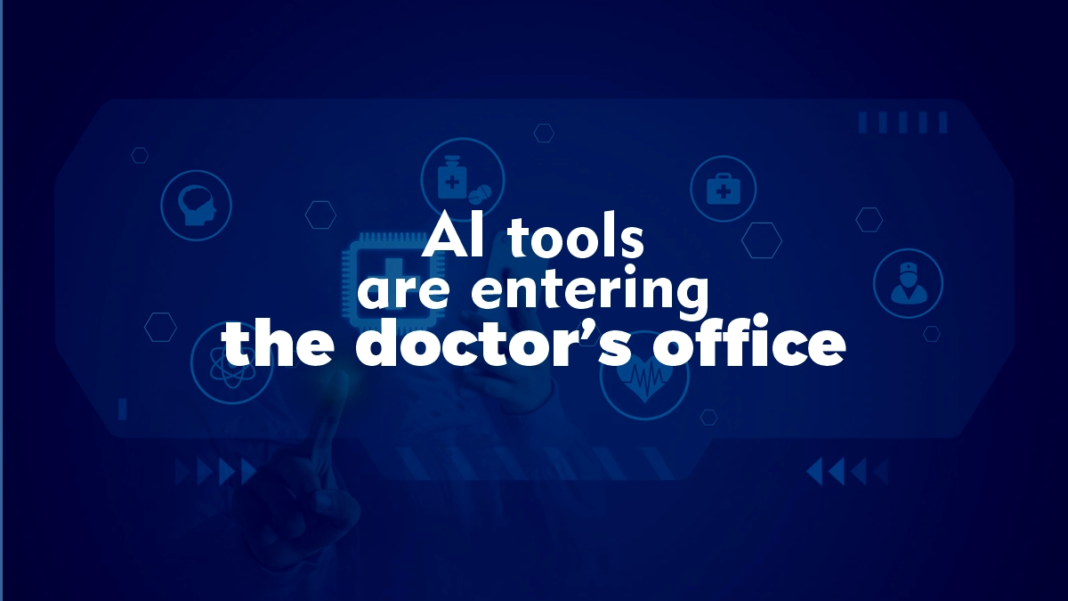Artificial intelligence (AI) is no longer a futuristic concept-it’s already reshaping the way doctors diagnose, treat, and interact with patients. AI tools are entering the doctor’s office at an unprecedented pace, revolutionizing clinical workflows, improving diagnostic accuracy, and redefining the patient experience. Within the first 100 words, it’s clear: medicine is undergoing a transformation that will be felt for generations.
The Rise of AI in Healthcare: From Pilot to Practice
In just two years, healthcare has gone from lagging in digital adoption to leading the enterprise AI revolution. According to Menlo Ventures, AI adoption in healthcare surged from 3% in 2023 to 22% in 2025, with health systems leading at 27%. This rapid shift is driven by urgent needs: clinician burnout, rising costs, and post-pandemic labor shortages. [menlovc.com]
Major institutions like Kaiser Permanente and Mayo Clinic are investing billions in AI. Kaiser’s rollout of Abridge’s ambient documentation across 600+ medical offices marks the largest generative AI deployment in healthcare history. Mayo Clinic, meanwhile, is backing over 200 AI projects spanning diagnostics, patient care, and operational efficiency. [menlovc.com]
AI-Powered Diagnostics: Accuracy Meets Speed
AI is redefining diagnostics. Tools now outperform radiologists in detecting lung nodules and breast cancer, with accuracy rates as high as 94%. In imaging and radiology, 90% of U.S. health systems report partial or full deployment of AI tools. [news.harvard.edu] [academic.oup.com]
Ambient Notes-AI systems that transcribe and summarize clinical conversations-are now active in 100% of surveyed health systems, with 53% reporting high success. These tools reduce documentation time by over 50%, freeing up physicians to focus on patient care. [academic.oup.com]
Dr. Isaac Kohane of Harvard Medical School describes AI’s diagnostic capabilities as “mind-boggling,” citing GPT-4’s ability to handle complex cases with precision. He believes AI will fundamentally improve the doctor-patient relationship by offering instant second opinions and reducing administrative burdens. [news.harvard.edu]
Transforming Clinical Workflows and Reducing Burnout
AI is not just about diagnostics-it’s streamlining operations. From automating prior authorizations to optimizing room utilization, AI is tackling inefficiencies across the board. In fact, ambient scribes alone generated $600 million in 2025, making them the most lucrative clinical AI application. [menlovc.com]
Yet, challenges remain. A survey by the Journal of the American Medical Informatics Association found that 77% of health systems cite immature AI tools as a barrier, followed by financial concerns and regulatory uncertainty. [academic.oup.com]
Despite these hurdles, the momentum is undeniable. Dr. Bernard Chang, Dean of Medical Education at Harvard, sees AI as “a transformative tool on par with the internet,” enabling deeper human connections in medicine. [news.harvard.edu]
Ethics, Equity, and the Human Touch
As AI tools enter the doctor’s office, ethical concerns grow. Experts warn that biased datasets can reinforce disparities in care. Dr. Leo Celi of Beth Israel Deaconess emphasizes the need for “human-AI systems” designed with input from psychologists, anthropologists, and ethicists. [news.harvard.edu]
At Stanford’s RAISE Health symposium, leaders echoed this sentiment. Dr. Lisa Lehmann stressed the importance of putting patients at the center, while Dr. Nina Vasan reminded attendees that physicians must uphold their oath to “do no harm” when deploying AI. [aiin.healthcare]
Transparency is also key. As one expert at SAIL 2025 noted, “We’re adopting AI based on the promise of tomorrow compared to the proven results of today, and that could be a big problem soon”. [irenechen.net]
The Future of Medicine: Augmented Intelligence, Not Replacement
AI isn’t replacing doctors-it’s augmenting them. Dr. Adam Rodman of Harvard envisions AI as a tool that helps physicians become “better versions of ourselves”. He imagines systems that detect bias, suggest alternative diagnoses, and provide feedback to improve clinical reasoning. [news.harvard.edu]
Still, caution is warranted. Rodman warns that over-reliance on AI could shortcut essential learning processes in medical education. “We may end up with generations of physicians who don’t know how to think the best,” he says. [news.harvard.edu]
Conclusion: Medicine’s AI Moment Has Arrived
The integration of AI into healthcare is not a distant vision-it’s happening now. From diagnostics to documentation, from patient engagement to predictive analytics, AI tools are entering the doctor’s office and changing medicine forever.
As Dr. Fei-Fei Li of Stanford puts it:
“AI will go further and do nothing less than enhance humanity.” [aiin.healthcare]
People Also Asked
How are AI tools entering the doctor’s office?
AI tools are entering the doctor’s office through applications like ambient scribes, diagnostic imaging, predictive analytics, and workflow automation. These tools improve efficiency, reduce errors, and enhance patient care.
What are the benefits of AI in clinical settings?
AI improves diagnostic accuracy, reduces documentation time, streamlines administrative tasks, and enables personalized treatment plans. It also helps mitigate clinician burnout and enhances patient engagement.
Are AI tools replacing doctors?
No. AI tools are designed to augment, not replace, physicians. They assist with decision-making, documentation, and diagnostics, allowing doctors to focus more on patient care.
What are the risks of AI in healthcare?
Risks include biased data, lack of transparency, regulatory gaps, and over-reliance on automation. Experts emphasize the need for ethical frameworks and human oversight.


